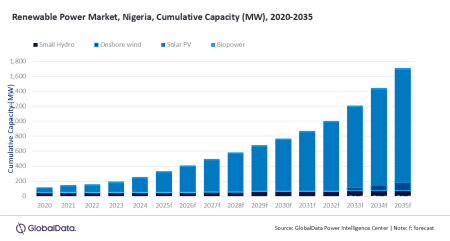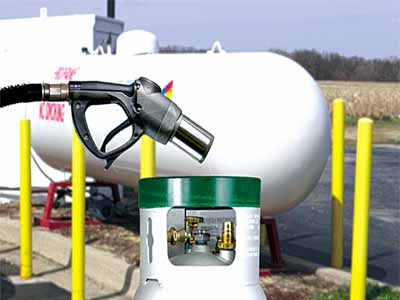 11 February 2018, Sweetcrude, Port Harcourt — The old man led his grand-daughter to an elevated patch of ground where they could see into a farm of goats, fenced with wooden boards that left little or no cracks. The pen had about thirty-four goats; five males, about 14 females and plenty of kids. “My child,” the old man said to his granddaughter as they looked upon the cluster of goats awaiting their lunch, “it would sadden you to learn as you would in a few minutes, that some farm owners and indeed humans are just a bit more intelligent than the population of an animal farm.” As they watched, the farmhand climbed unto a platform that overlooked the pen. Already on the platform were ten big tubers of yam. At the sight of the farmhand, a fight erupted within the cluster of goats as a strong male with big convex horns started to scoop other males out of the cluster. But not minding the fight which he had become accustomed to, the farmhand started slicing the yams and throwing the slices randomly into the cluster. The little girl was horrified to see kids thrown into the air as the male goats and few strong females fought for a lunch that could have fed the whole pen adequately had the yams been distributed in a more orderly pattern.
11 February 2018, Sweetcrude, Port Harcourt — The old man led his grand-daughter to an elevated patch of ground where they could see into a farm of goats, fenced with wooden boards that left little or no cracks. The pen had about thirty-four goats; five males, about 14 females and plenty of kids. “My child,” the old man said to his granddaughter as they looked upon the cluster of goats awaiting their lunch, “it would sadden you to learn as you would in a few minutes, that some farm owners and indeed humans are just a bit more intelligent than the population of an animal farm.” As they watched, the farmhand climbed unto a platform that overlooked the pen. Already on the platform were ten big tubers of yam. At the sight of the farmhand, a fight erupted within the cluster of goats as a strong male with big convex horns started to scoop other males out of the cluster. But not minding the fight which he had become accustomed to, the farmhand started slicing the yams and throwing the slices randomly into the cluster. The little girl was horrified to see kids thrown into the air as the male goats and few strong females fought for a lunch that could have fed the whole pen adequately had the yams been distributed in a more orderly pattern.
There are parallels between the conduct of resource distribution in the farm described above and life in Nigeria. We say we are 180 million people in Nigeria but we cannot be sure because of the complicated web of interests that ensure accurate figures are never available to us. What we are sure about is that we have an abundance of oil and gas resources we export because we cannot soak up the demand for what we have even if our population is tripled magically. However, by some inexplicable and unscientific methods deployed in the management and distribution of our oil and gas resources, we suffer severe fuel scarcity and more: environmental degradation, increase in bronchial ailments, inflation, sharp decrease and increase in the movement and cost of goods and services, a disillusioned, demoralised and cynical population, among many negative consequences. Why have we always suffered fuel scarcity? Like the greedy strong goats in our animal farm, the numerically strong in Nigeria pounced on the ownership rights of oil and gas deposits in Nigeria, making same everybody’s and nobody’s property, held in trust perpetually by the men and women who find themselves in job placements between the Presidency, the Federal Ministry of Petroleum Resources, the NNPC and her uncountable subsidiaries. And then there are the policymakers in these three career locations. Motivated more by power, personal greed, ethnic and religious affiliations than by social order and peace they roll out policies that course contusions in the distribution chain. Nigeria is the subject of dinner table mockery and business schools’ example of STUPID BUSINESS to the extent that we still debate the inevitability of the failure of any business run by the government in this 21st Century. That is why a policy to retain Nigeria’s three refineries under government management is still ‘acceptable.’
The other set of players that have undermined even distribution of our oil and gas resources are the marketers. Not satisfied with growing their ledgers in single digits, they deploy concealment, hoarding, the manipulation of government policy and actions, metres, figures and the population by sponsoring fake industrial actions. These are vicious businessmen who have gangs, bad cops, expensive lawyers, corrupt judges, lawmakers and government technocrats on their payrolls. Insulated from the effects of their activities, these set of Nigerians manipulate the system for jumbo profits. These, are in one’s humble opinion the worst culprits of our fuel distribution malaise; certainly, this set, bent on a standard of living that is sustained at huge costs to Nigerian society, would continue their manipulations whether government and government policies cease to factor in oil and gas distribution. This picture cannot be complete without mentioning the Nigerian peoples’ complacent acceptance of government’s seizure of the proprietary rights in oil and gas, the tolerance of policies that assure failure not only of the enterprises set up by government but the policies that distort fuel distribution in the country and the shenanigans of the marketers who profit from the peoples’ suffering. Nigerians have achieved fame for underwriting every adversity with comedy and for tolerating injustice and actions that undermine their existence. Unlike the kids in the goat farm who had few options against the male and strong goats, Nigerians have an abundance of options to shirk off the three purveyors of adversity in their oil and gas chain but their silence and the enjoyment of the jokes twirled around their monumental sufferings have bred the growth and further growth of a system of oil and gas distribution that diminishes their chances at ever achieving optimum distribution like the unfortunate situation in the animal farm.



